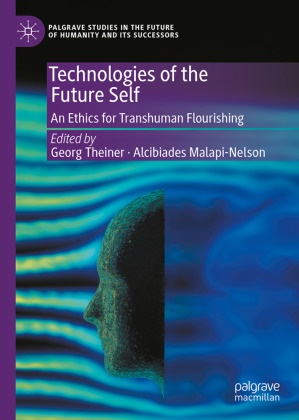Ulteriori informazioni
This volume is the first to articulate ethical foundations of transhumanism from perspectives focused on transhuman flourishing, as opposed to utilitarian or deontological approaches. Transhumanism is typically framed as a quest for transcending biological limitations and unlocking human potential and thus perceived to be at odds with ethical conceptions of a good life that are substantively defined in terms of human nature. However, the concept of human nature is not a biological given but deeply bound up with metaphysical conceptions about what (trans)human futures are possible, desirable, and good. It invites ethical reflection on who we are, the value of embodiment and community to (trans)human existence, and who we might hope to become. The contributions collected in this volume offer a wide spectrum of visions for shaping the techno-progressive agenda of transhumanism in ethically grounded and socially responsible ways.
Sommario
1. Introduction: Who s Afraid of Transhuman Flourishing?.- Part I. Transhumanism and Human Flourishing.- 2. Human Flourishing Requires Transhumanist Flourishing.- 3. Is Transhumanism Necessarily Utilitarian? Recasting Alternative Ethical Systems towards a Future Human Flourishing.- 4. An Aristotelian Typology and Evaluation of Transhumanism: Concordance and Conflict.- 5. Revolution And Transformation: Vygotsky, Eudaimonia, and the Social Essence of (Trans)Human Development.- 6. In Search of the Human Style: Is Homo Sapiens a Crime against the Concept of Humanity?.- 7. Euro-Transhumanism.- 8. Beyond Theory: A Mythical Journey towards Posthumanist Ethix.- Part II. Transhumanism and Christian Philosophy.- 9. Transhumanism as a Secular Vision of Christian Ethics.- 10. Christian Transhumanism: Furthering the Redemptive Purposes of Christ.- 11. Our Future Self: Cyber Enhancement and Spiritual Transformation.- 12. Christianity for Transhumanists: A View from Eastern Orthodoxy.- 13. On Becoming Better: Some Ethical Questions from a Feminist Christian Theological Perspective.- 14. Teilhard de Chardin on Technology and Human Evolution: Why AI Needs Mysticism.
Info autore
Georg Theiner is Associate Professor in Philosophy at Villanova University, USA.
Alcibiades Malapi-Nelson teaches Philosophy and Humanities at the Faculty of Liberal Arts & Sciences at Humber Polytechnic, in Toronto, Canada.
Riassunto
This volume is the first to articulate ethical foundations of transhumanism from perspectives focused on transhuman flourishing, as opposed to utilitarian or deontological approaches. Transhumanism is typically framed as a quest for “transcending biological limitations” and “unlocking human potential”—and thus perceived to be at odds with ethical conceptions of a “good life” that are substantively defined in terms of “human nature.” However, the concept of “human nature” is not a biological given but deeply bound up with metaphysical conceptions about what (trans)human futures are possible, desirable, and good. It invites ethical reflection on who we are, the value of embodiment and community to (trans)human existence, and who we might hope to become. The contributions collected in this volume offer a wide spectrum of visions for shaping the techno-progressive agenda of transhumanism in ethically grounded and socially responsible ways.

